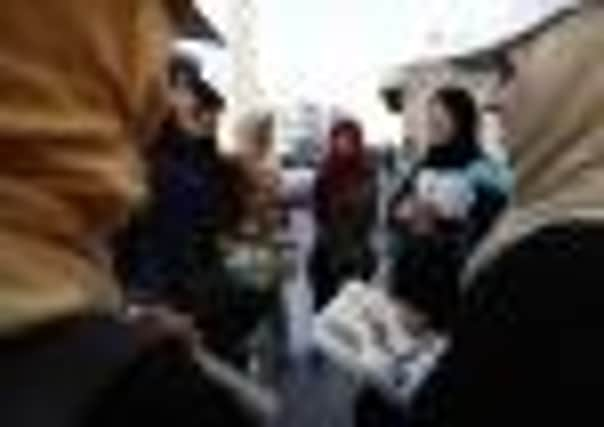Attacks on polling HQs puts Libya’s first election at risk


Federalists, who want semi-independence for Libya’s oil-rich Cyrenaica province, attacked and burned a building where ballot papers were stored in Ajdabiya, 60 miles south of Benghazi, the regional capital, on Wednesday night, three days after militia stormed another such storehouse in Benghazi, filming themselves scattering looted files.
Election officials insist they have enough polling papers to allow tomorrow’s vote to proceed. “This will not stop the election, we have back-up materials at other sites,” said Osama Rahuma of Libya’s High National Election Commission.
Advertisement
Hide AdAdvertisement
Hide AdBut the attacks add to the security headache that may mean some parts of Libya are too dangerous for the ballot to proceed unhindered.
European Union monitors say security fears will probably prevent them observing the vote in the southern cities of Sabha and Kufra, the scene of recent fierce inter-tribal fighting.
But it is the eastern federalists who pose the biggest challenge to an election being held nine months after the fall of Colonel Muammar al-Gaddafi’s regime. Federalist militias continue to block Libya’s only east-west highway, on the coast near Red Valley, the border of Cyrenaica, which they say should operate as a semi-independent province.
The federalist issue, which has seen protests in Benghazi in recent months, reopens old wounds in Libya. Cyrenaica was only subsumed in 1934, when it was joined with Tripolitania in the west and Fezzan in the south to create the present state. Many in the east, aware it controls the bulk of Libya’s oil, would be happy to see a breakaway.
However, in an extraordinary response, a delegation from the western city of Zawiya, one of the biggest rebel redoubts in last year’s uprising, yesterday offered to transfer all its six parliamentary seats to eastern Libya.
“Zawiya stood with Benghazi from the very outset of the revolution,” Osama Kubbar, one of the town’s candidates who offered to give up his seat, was quoted as telling the Libya Herald newspaper. “Seats count for nothing compared to the sacrifices of Libyans.”
The move is, from a technical standpoint, impossible – with three days to go, the voting rules cannot be altered. But the gesture may act to reassure Benghazi that other Libyans do not want them to break away.
It is likely the election could spark most protests in the capital, Tripoli, rather than in the regions. It has 700,000 voters, a quarter of the country’s total, but gets only 30 of the 200 MPs, a sixth of the new parliament.
Advertisement
Hide AdAdvertisement
Hide AdThe regions, by contrast, are over-represented: Cyrenaica has 770,000 voters and gets 60 seats.
Adding to the confusion is the voting system. A total of 120 seats are reserved for individual candidates, and 80 for parties, an arrangement which may make it difficult to construct a working coalition when the new parliament meets next week.
The lack of opinion polls makes predictions for tomorrow’s vote impossible, but Libya seems set to follow the pattern in fellow Arab spring states, Egypt and Tunisia, in seeing Islamists challenging liberals.